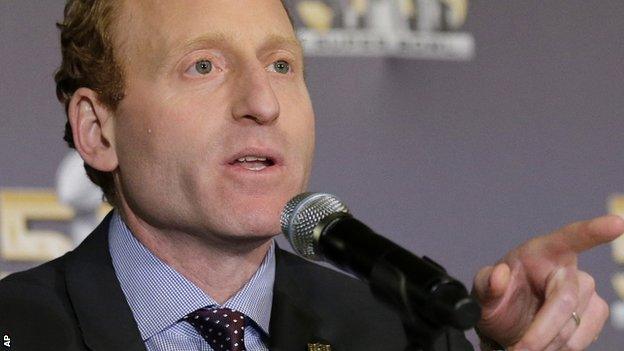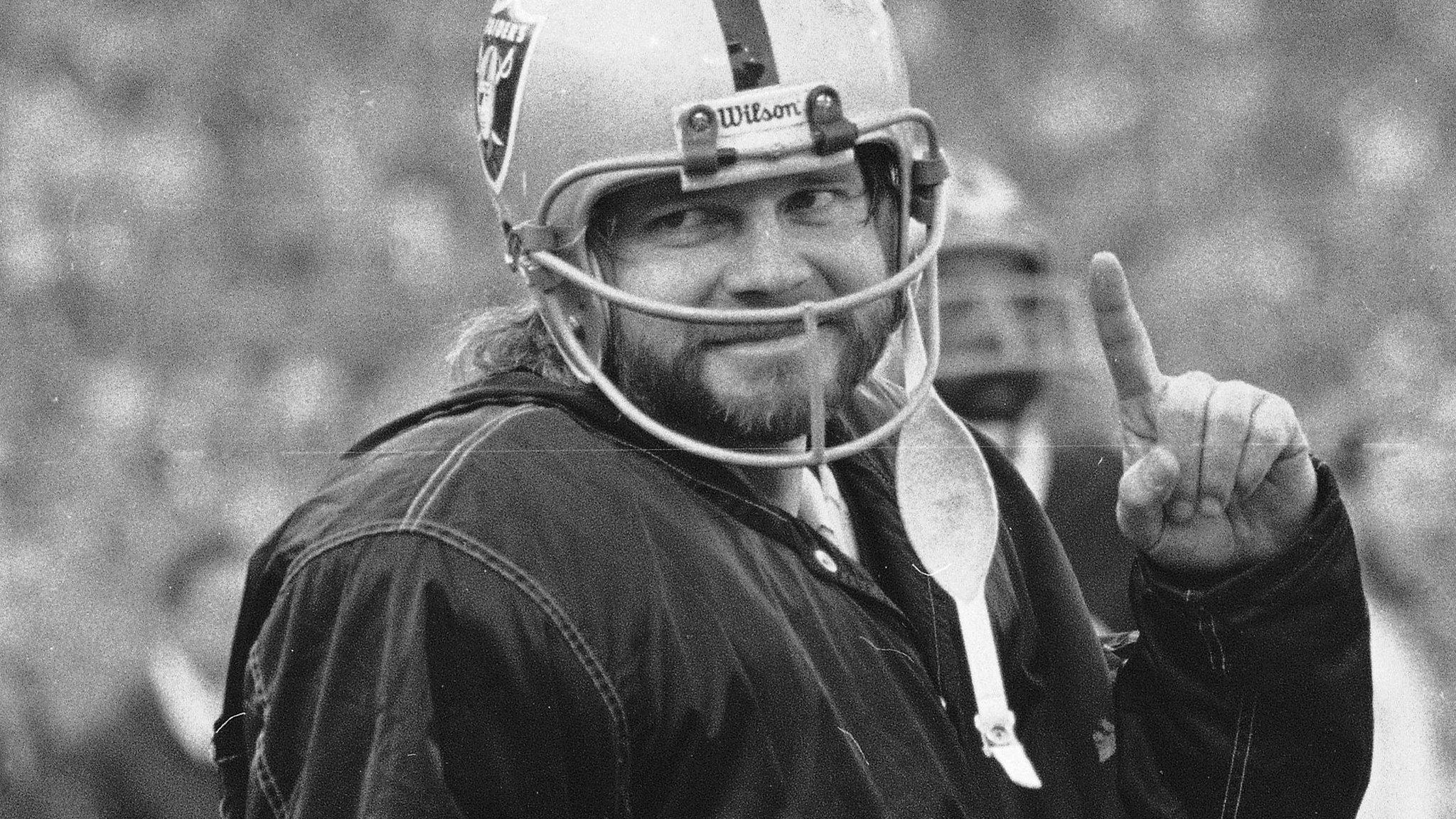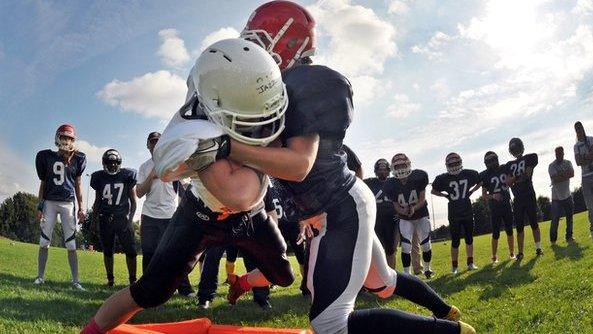Top NFL official acknowledges link between American football and CTE
- Published
- comments

Miller made his remarks before a committee of the US House of Representatives
A top NFL official has acknowledged a link between head trauma in American football and the brain disease chronic traumatic encephalopathy (CTE).
It is the first time a league executive has made such a concession.
Jeff Miller, the NFL's vice president of health and safety, was quizzed about CTE by United States politicians.
Asked whether there was a link between the game and neurodegenerative diseases like CTE, Miller replied: "The answer to that question is certainly yes."
In the build-up to Super Bowl 50 earlier this year, neurosurgeon Mitch Berger, who leads the NFL's subcommittee on long-term brain injury, said no link between American football and CTE had been established.

CTE has been found in the brains of dozens of former American football players, among them Ken Stabler
Jan Schakowsky, who represents Illinois, was critical of Berger's comments, saying the league was "peddling a false sense of security" in downplaying the dangers of head trauma.
"Football is a high-risk sport because of the routine hits, not just diagnosable concussions," said Schakowsky.
"What the American public needs now is honesty about the health risks and clearly more research."
The NFL has previously acknowledged that head trauma, particularly concussion, poses a risk to the long-term health of players.
However, NFL commissioner Roger Goodell and other top officials have not made definitive public statements on the matter.
Goodell defends NFL concussion record
In giving his answers, Miller cited the work of Boston University neuropathologist Ann McKee.
She told committee members there is no doubt in her mind the illness, which can only be detected after death, is linked to playing football.
"I unequivocally think there's a link between playing football and CTE," said McKee.
"We've seen it in 90 out of 94 NFL players whose brains we've examined.
"We've found it in 45 out of 55 college players and six out of 26 high school players."
Some 5,000 former players have sued the NFL, claiming it hid the dangers of repeated head trauma.
CTE, external is associated with symptoms such as memory loss, depression and progressive dementia.
The disease, which can only be diagnosed after death, has been found in the brains of dozens of former American football players.
- Published3 February 2016

- Attribution
- Published3 March 2016

- Published3 April 2019
